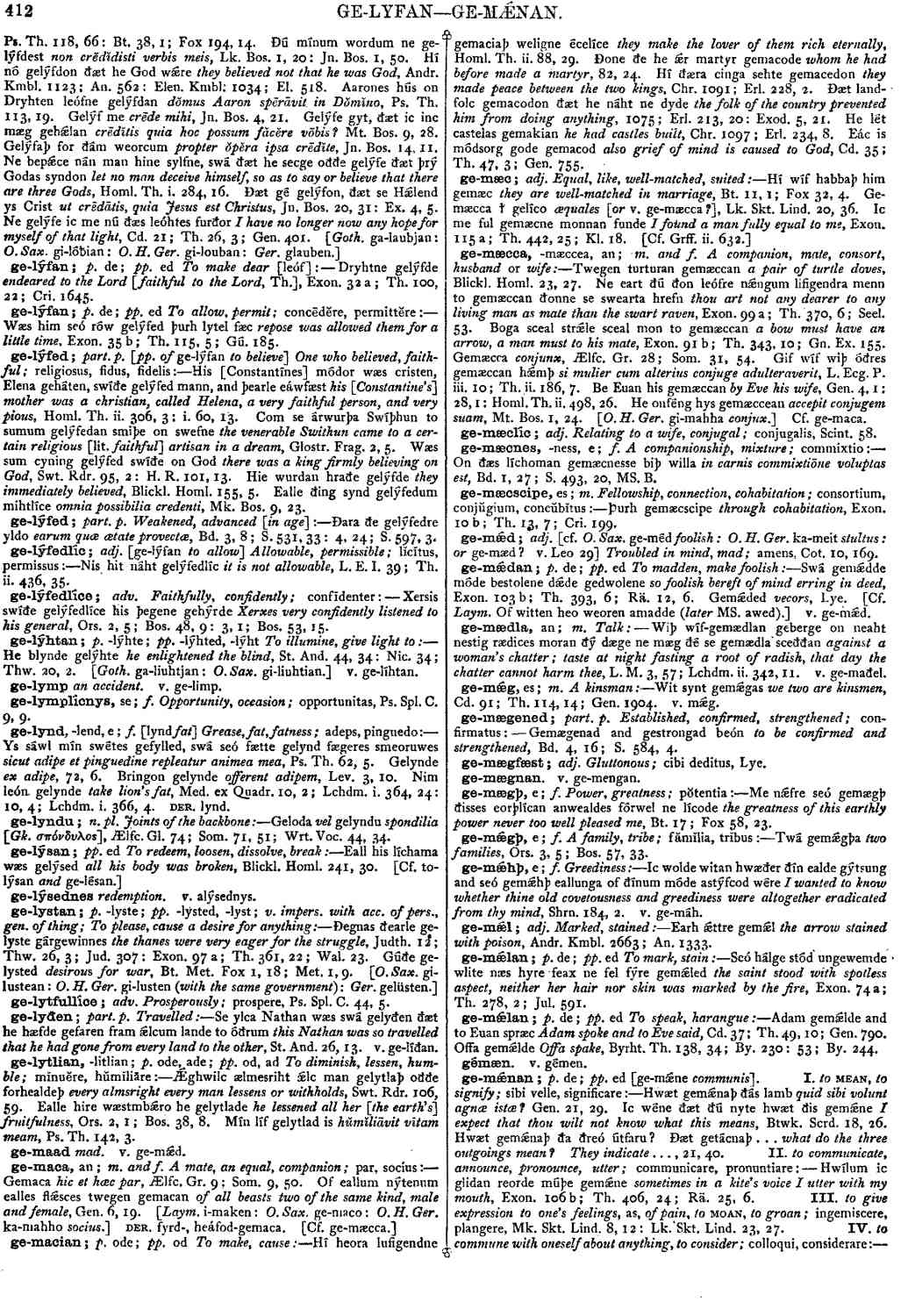ge-mǽnan
- verb [ weak ]
-
Hwæt gemǽnaþ ðás lamb
quid sibi volunt agnæ istæ?
- Gen. 21, 29.
-
Ic wéne ðæt ðú nyte hwæt ðis gemǽne
I expect that thou wilt not know what this means,
- Btwk. Scrd. 18, 26.
-
Hwæt gemǽnaþ ða ðreó útfaru? Ðæt getácnaþ . . .
what do the three outgoings mean? They indicate . . .
,- 21, 40.
-
Hwílum ic glidan reorde múþe gemǽne
sometimes in a kite's voice I utter with my mouth,
- Exon. 106 b; Th. 406, 24; Rä. 25, 6.
- Mk. Skt. Lind. 8, 12 : Lk. Skt. Lind. 23, 27.
-
Se fæder hit gemǽnde stille
pater rem tacitus considerabat,
- Gen. 37, 11.
-
Ðæt ðǽr ǽnig mon wordum ne worcum wǽre ne brǽce, ne þurh inwit-searo ǽfre gemǽnden
that there not any man by words or works should break the compact, nor through guileful art should ever violate it,
- Beo. Th. 2207, note; B. 1101.
Bosworth, Joseph. “ge-mǽnan.” In An Anglo-Saxon Dictionary Online, edited by Thomas Northcote Toller, Christ Sean, and Ondřej Tichy. Prague: Faculty of Arts, Charles University, 2014. https://bosworthtoller.com/15112.
Checked: 0